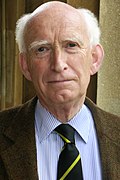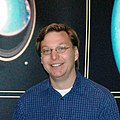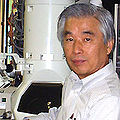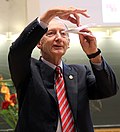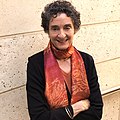| The Kavli Prize | |
|---|---|
 | |
| Awarded for | outstanding contributions in Astrophysics, Nanoscience, and Neuroscience. |
| Country | Norway |
| Presented by | |
| Rewards | A gold medal, a scroll, and a monetary award of US$ 1,000,000 |
| First award | 2008 |
| Number of laureates | 21 prizes to 54 laureates (as of 2021 [update] ) |
| Website | http://www.kavliprize.no |
The Kavli Prize was established in 2005 as a joint venture of the Norwegian Academy of Science and Letters, the Norwegian Ministry of Education and Research, and the Kavli Foundation. It honors, supports, and recognizes scientists for outstanding work in the fields of astrophysics, nanoscience and neuroscience. Three prizes are awarded every second year. Each of the three Kavli Prizes consists of a gold medal, a scroll, and a cash award of US$1,000,000. The medal has a diameter of 70 millimetres (2.8 in), a thickness of 5 millimetres (0.20 in), and weighs 311 grams (11.0 oz). [1] [2]
Contents
- Selection committees
- Laureates
- Astrophysics
- Nanoscience
- Neuroscience
- See also
- References
- External links
The first Kavli Prizes were awarded on 9 September 2008 in Oslo, presented by Haakon, Crown Prince of Norway.

